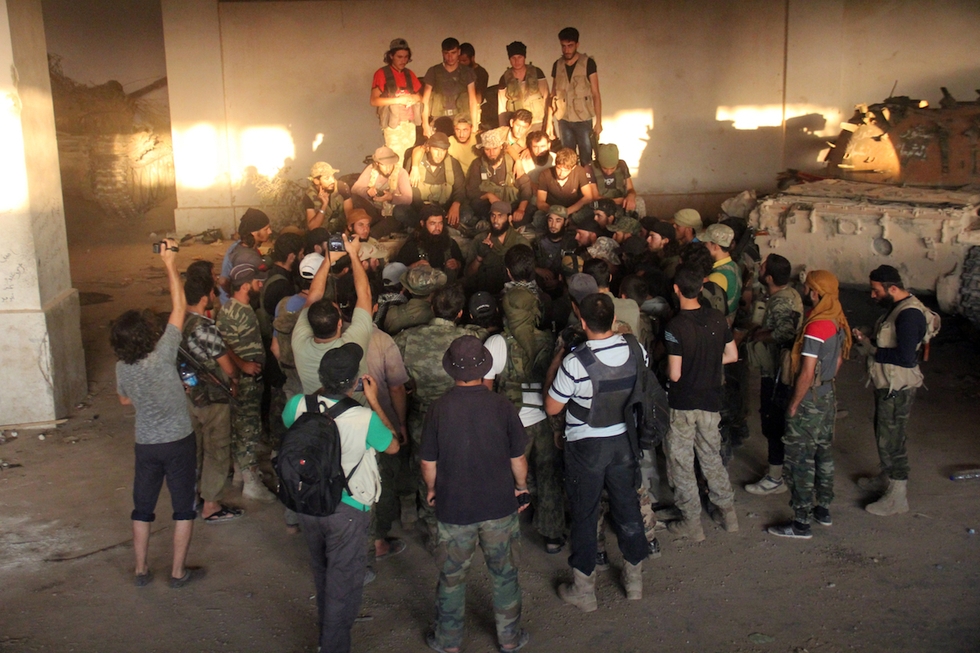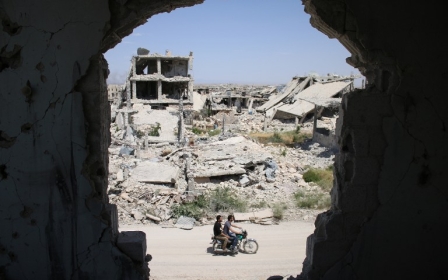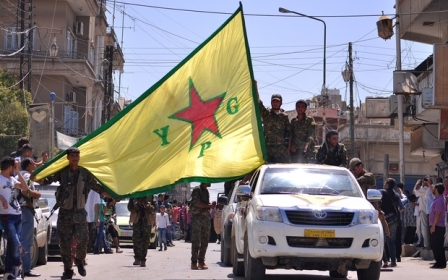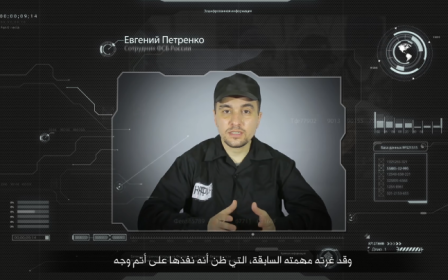Al-Qaeda-linked alliance threatens Syria rebels on safe zone deal

An alliance dominated by al-Qaeda's former Syrian branch has warned rebel groups against implementing a deal on safe zones, saying they would be considered traitors.
Tahrir al-Sham, led by Jabhat Fateh al-Sham, made the threat late Tuesday in response to an agreement signed by rebel backer Turkey and government supporters Iran and Russia in Kazakhstan last week.
The agreement calls for the establishment of four "de-escalation zones" where rebels and government forces will halt hostilities, including air strikes, for six months.
But it carves out an exception for the continued targeting of militant groups like the Islamic State group and Fateh al-Sham, previously known as the Nusra Front.
"Accepting the Astana deal is tantamount to betrayal... and a conspiracy to destroy jihad and revolution in Syria," Tahrir al-Sham said.
It called on its allies to "fight any criminal gangs and spend every effort to prevent" rebel groups trying to advance on its territory.
Neither Syria's government nor the rebels are direct signatories to the Astana deal. While the foreign ministry in Damascus has said it accepts the agreement, the opposition has expressed concerns.
The exact borders of the de-escalation zones are to be delineated by 4 June, but a ceasefire in the rough areas affected came into effect on Friday night.
The four main battlegrounds included are the northwestern province of Idlib, parts of the central province of Homs, the south, and the opposition enclave of Eastern Ghouta near Damascus.
But Fateh al-Sham is a powerful force and a regular ally for rebels in several opposition-controlled areas, particularly in Idlib.
Analysts expect the close relationship will complicate the implementation of the deal, which was reached in Astana during a fresh round of talks on Syria's war brokered by Ankara, Moscow, and Tehran.
Under the agreement, the three powers are responsible for "separating" militant groups like IS and Fateh al-Sham from other rebel factions.
The first round of the Astana talks in January was marred by fierce fighting between Fateh al-Sham and other rebel groups that left dozens of fighters dead in Idlib.
The conflict broke out with protests in 2011 against the Damascus government, but has since evolved into a multi-front war that has killed more than 320,000 people.
New MEE newsletter: Jerusalem Dispatch
Sign up to get the latest insights and analysis on Israel-Palestine, alongside Turkey Unpacked and other MEE newsletters
Middle East Eye delivers independent and unrivalled coverage and analysis of the Middle East, North Africa and beyond. To learn more about republishing this content and the associated fees, please fill out this form. More about MEE can be found here.




